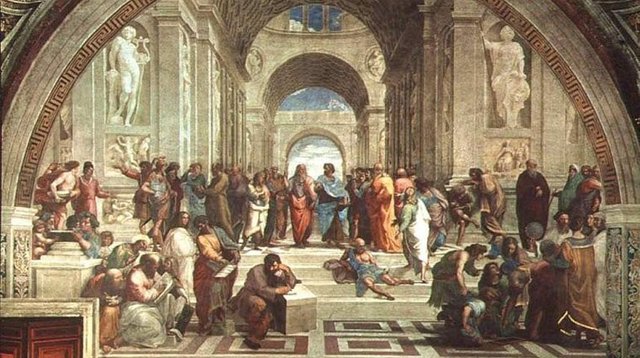Ancient philosophy. Some thoughts about Aristotle and Alexander of Macedon /part 6/
Kalisfen's dungeon deprived the Greeks of all illusions of relatively enlightening and humane nature in Alexander's power and forced them to see the eastern despot, the cruel and inhuman, affirming his power in endless bloody crimes. Kalisfen became a martyr who gave his life for freedom and human dignity, which, too, was not long ago, in the age of Greekt-Persian wars that held the peak over the bloody, amoral-barbaric Eastern tyranny. After Kalishen's defeat, all enlightened illusions about Macedonian rule once and for all disappeared. And if someone still continues to praise Alexander, it is only because of infinite cowardice.
One important issue, namely, the assessment that Aristotle gives to the different peoples is to be addressed. If we look at the most, we will be struck by the breadth of his views and his purely Greek sympathies. In his policy, he writes: "The nationalities inhabiting the cold climates north of Europe are masculine, but intellectual life and artistic interests in them are poorly developed. That is why they will preserve their freedom longer, but they will not be able to live in the state and can not rule their neighbors. Conversely, Asian-born nationalities are gifted with mastery of art, but they do not attain masculinity, so they live in slavery and slaves. The Hellenic people unite in themselves the best natural qualities of one and the other.
In the first place, Aristotle had very little historical material to judge the northern peoples, and attributed to them a quality that is perfectly understandable to him, namely the quality of the nations, forced to fight for their existence in the harsh environment. Aristotle's reflections on Asians are a little more realistic, as far as Asia's cultural and historical life is known to him. Sciences and arts in the East had no less and no more than in the West. As for slavery and slaves, the Ancient East really differed with these qualities much more than Europe in the face of Ancient Greece, which had begun to manifest in the first place certain determinants of democratic thoughts.
Aristotle was well aware of the history of the Greek people, and he was a very clever social-historical observer. Ancient Greece was not like a great state. Not every big city claimed self-contained and fully distinct statehood. As a state could only be the polis, the city in which everyone knows each other, and every joint undertaking is discussed and performed. The above Aristotle's "Politics" shows that such a fragmented country can thrive only under the guidance of a smart and serious man.

empires do rotate